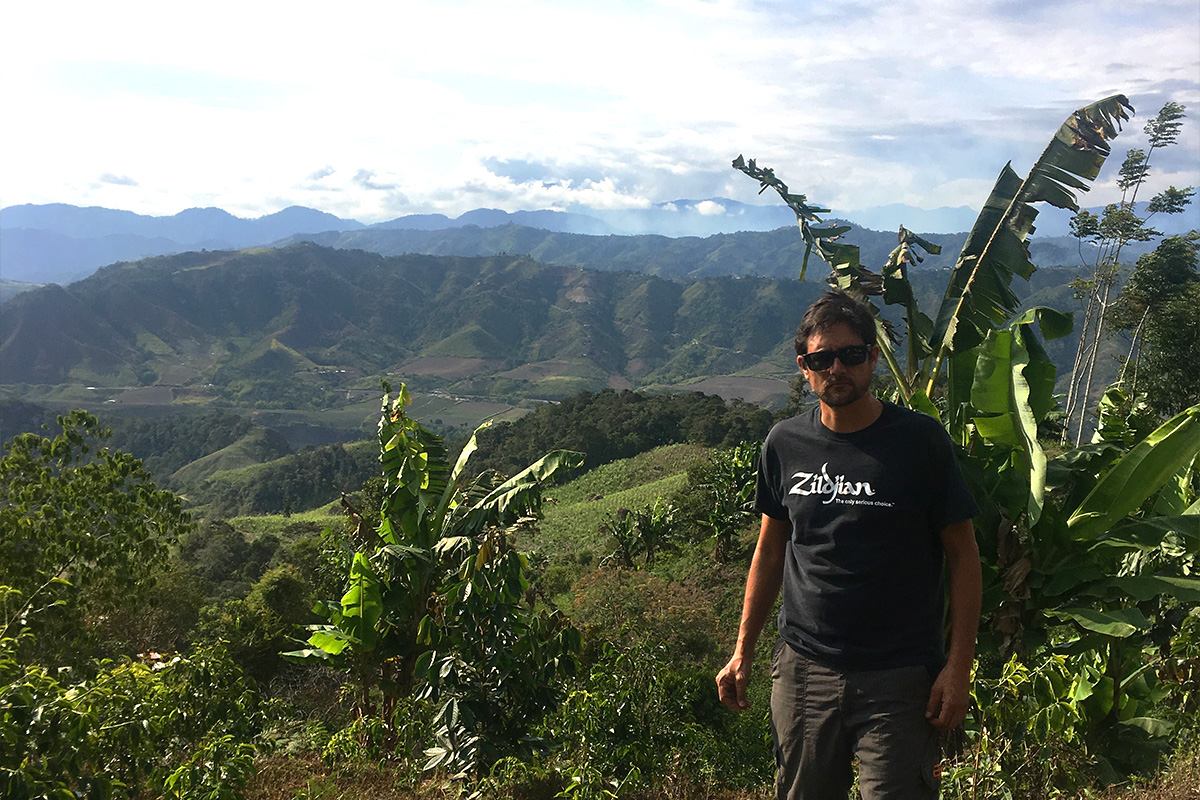Mario Jose Hervas
FINCA MERIDIANO STORY
In the northern canton of Quito, there is a small town called Meridiano. In its surrounding rural area, Mario Hervas has his farm El Meridiano, named after the town. Mario’s journey in coffee started in 2011 when he was motivated as a consummate coffee consumer and as an agronomy engineer to begin producing coffee. He bought the farm back then, starting from scratch. The land had only sugar cane, but he cleared it and planted coffee. Since then, his right-hand man has been Byron Ruiz, who helps him as the farm administrator and oversees the day-to-day work. Mario remembers that with the first production, his hopes regarding quality weren’t high—maybe an 82—but the coffee’s quality turned out to be much better, confirming that he was on the right track. Throughout these years in coffee, he is proud of what he has been able to achieve, starting from zero in coffee, having no prior knowledge or family involved in coffee, and being self-taught. In 2021 he had a good participation in Cup of Excellence of Ecuador, getting to the final round and placing 10th with his Washed Typica Mejorado. Nowadays, Mario’s next project is to take advantage of the organic material from the pulping process, creating organic compost, and thus reducing the usage of fertilizers. He is very keen on protecting the environment at his farm.
The coffee process at El Meridiano starts with a meticulous manual harvest of the ripe cherries, which are then taken to the wet mill on the farm. There, they are spread out on tables, and a manual selection is done to discard any defective cherries. Afterwards, a second selection is done by floating the cherries. Following this step, the cherries are left to ferment in containers for a period of 12 to 16 hours, after which they are pulped. Then, they undergo a second fermentation of 16 to 20 hours. When this process is finished, the cherries go through a shade drying period of 2 days to drain any liquid they might have after washing. The next step in drying is when they are taken to the raised beds, where it will take from 16 to 20 days for the coffee to reach its ideal humidity point.
Farm Varieties
Size
Total Farm Area
7 Hectares
Area in Coffee
Location
Country
Canton
Nenegal
Province
Pichincha
Elevation
1,550 MASL
Technical info
Harvest
June – August.
Processing Method
Washed.
Shade
Guabos, Aliso.
Drying Method
Canopy or solar tent or roof for 16 days.






